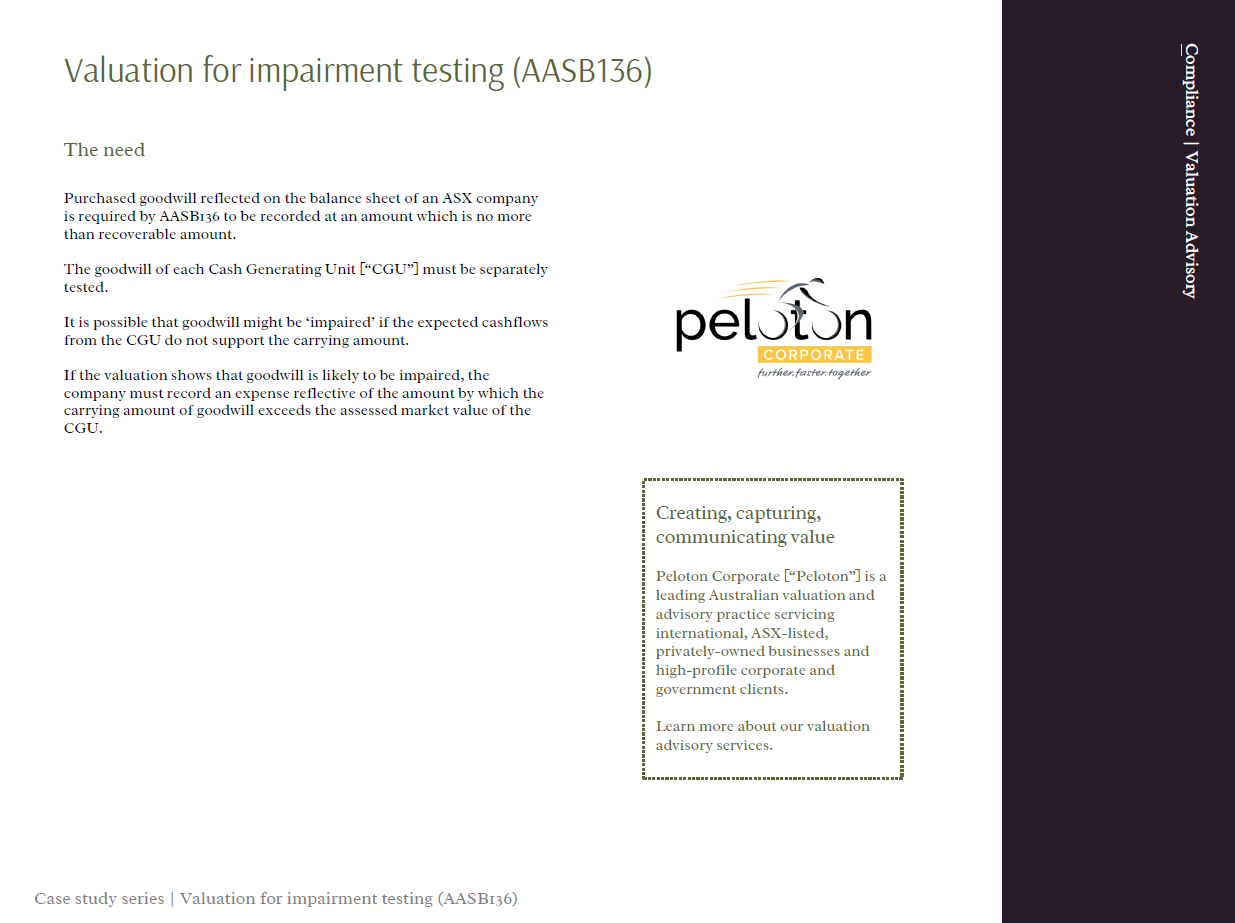The need for valuation impairment testing
Purchased goodwill reflected on the balance sheet of an ASX company is required by AASB136 to be recorded at an amount which is no more than recoverable amount.
The goodwill of each Cash Generating Unit [“CGU”] must be separately tested.
It is possible that goodwill might be ‘impaired’ if the expected cashflows from the CGU do not support the carrying amount.
If the valuation shows that goodwill is likely to be impaired, the company must record an expense reflective of the amount by which the carrying amount of goodwill exceeds the assessed market value of the CGU.
Valuation issues and considerations
AASB136 effectively requires a valuation of each CGUs cashflows using a market-based discount rate (weighted average cost of capital or “WACC”).
Whilst the capital market’s implied business value of all CGUs is evidenced from the market capitalisation of equity plus debt, AASB136 requires an independent and objective assessment of business value and impliedly assumes the valuer will employ commercially confidential information which has not been released to the market.
Forecasts must be developed which reflect current and likely future operating conditions, strategic initiatives, economic risks, commodity prices etc.
The forecasts must also take into account the prospect that certain intangibles (such as patents) are subject to amortisation and the value of such intangibles are likely to rely on an imputed return from the CGU (royalty).
Peloton solution
Working with the company’s strategic plan, budgets and management team, Peloton developed a multi-year cashflow projection for each CGU (a three-way P&L, cashflow and balance sheet).
The projections are anchored in actual results and the assumptions supporting the projections are interrogated at a detailed level to ensure they are not infected by a natural upward bias.
This validation process is important to ensure consistency with the assessed WACC.
A valuation of each CGU is undertaken and the ‘headroom’ to carrying amount is determined.
The total value of the CGUs is also cross-checked to a controlling value of the company’s equity plus debt. To the extent that the assessed business values materially exceed the market’s view, the difference is interrogated to determine whether (for example), certain strategic initiatives are not known to the capital market or under-valued.
Peloton has provided the annual impairment testing valuations in the form of a detailed report and deep-dive reviews by the company’s auditors for over a decade.
